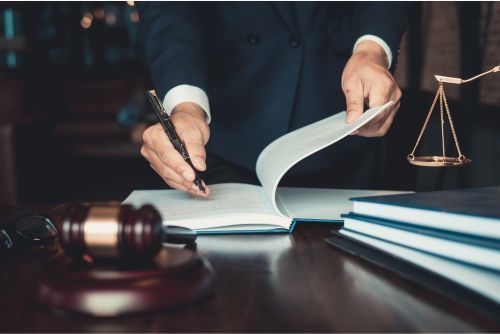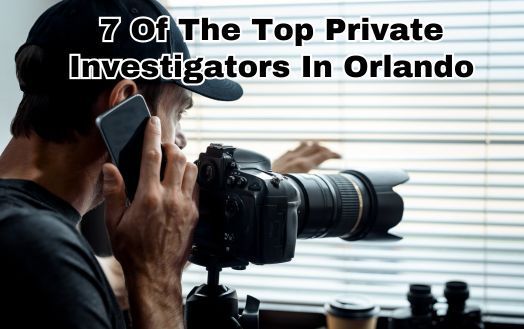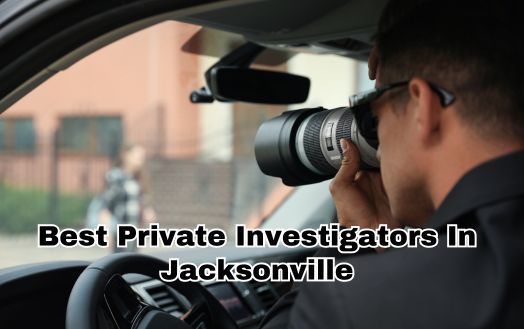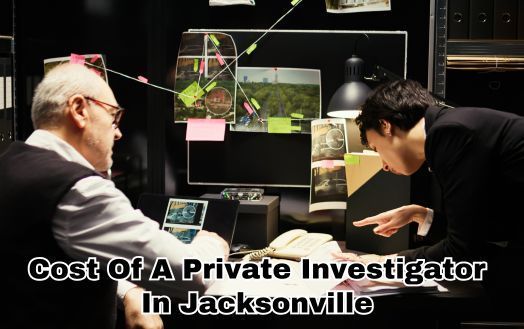What Questions To Ask When Hiring A Private Investigator

Are you ready to uncover the truth? Hiring a private investigator can be a game-changer when it comes to solving mysteries and resolving complex situations. But before you dive headfirst into the world of sleuthing, it's important to know what questions to ask when hiring a private investigator.
After all, you want someone who is not only experienced and skilled but also innovative in their approach. In this article, I will guide you through the essential questions to ask when hiring a private investigator, ensuring that you make an informed decision and unleash your inner detective.
Picture this: you're embarking on a thrilling journey where every step brings you closer to unveiling hidden truths. When it comes to hiring a private investigator, experience and expertise are key. You need someone who has honed their skills over time, navigating through various cases with finesse. But don't stop there – dig deeper.
Ask about their types of cases handled, as this will give you an insight into their ability to adapt and think innovatively in different scenarios. By asking these questions upfront, you'll ensure that your chosen investigator possesses the necessary expertise and innovation required for cracking even the most perplexing cases.
So get ready to channel your inner Sherlock Holmes as we unravel the secrets of hiring a top-notch private investigator.
Interview Questions To Ask Private Investigator
Are you wondering what questions to ask when hiring a private investigator? Well, you've come to the right place. Hiring a private investigator is an important decision, and it's crucial to make sure you find the right person for the job.
One of the first things you should ask about is their experience. Find out how long they've been working as a private investigator and what types of cases they've handled in the past. This will give you an idea of their expertise and whether or not they've dealt with similar situations before.
In addition to asking about their experience, it's also important to inquire about references. A reputable private investigator should be able to provide you with references from previous clients who can vouch for their professionalism and results. Contacting these references will give you valuable insight into how well the investigator performed on previous cases and whether or not they were able to achieve the desired outcomes.
Lastly, don't forget to ask about their background checks process. Background checks are often an integral part of many investigations, so it's essential that your chosen private investigator has access to reliable resources and knows how to gather accurate information. Inquire about the methods they use for conducting background checks and ensure that their techniques align with your expectations.
Now that you know what questions to ask regarding experience, references, and background checks, let's move on to discussing the importance of hiring someone with extensive knowledge in your specific area of interest without skipping a beat.
Good Private Detective Experience And Expertise

With a wealth of experience and expertise under my belt, I can uncover the truth and provide invaluable insights into any situation. As a private investigator, I've spent years honing my skills and developing a deep understanding of investigative techniques.
Whether it's conducting surveillance, gathering evidence, or interviewing witnesses, my experience allows me to navigate complex cases with ease. My expertise in the field enables me to think critically and creatively, finding innovative solutions to even the most challenging investigations.
When hiring a private investigator, it's crucial to inquire about their experience and expertise. Ask them how many years they've been working in the field and what types of cases they've handled in the past. A seasoned investigator will have encountered various scenarios and developed strategies to tackle each one effectively. Additionally, inquire about their success rate and any specialized training or certifications they possess that may be relevant to your specific case.
By choosing an experienced private investigator who's dealt with similar situations before, you can have confidence in their ability to handle your case competently. Their knowledge gained from previous experiences allows them to approach your situation with a unique perspective and identify potential obstacles or opportunities for success.
Now that we understand the importance of experience and expertise when hiring a private investigator, let's delve into another critical aspect – the types of cases they handle - without skipping a beat.
Types Of Cases Handled
My expertise allows me to delve into a variety of intriguing cases, from missing persons to corporate fraud. As a private investigator, I've handled a wide range of investigative work throughout my career.
Whether it's conducting background investigations on potential employees or gathering evidence for civil litigation cases, I'm well-versed in the different types of cases that may arise during the hiring process.
When it comes to hiring a private investigator, it's crucial to consider their experience in handling various types of cases. Each case requires a unique set of skills and strategies, and an experienced investigator understands how to adapt their approach accordingly.
From personal injury claims to insurance fraud investigations, I've encountered numerous scenarios that have sharpened my ability to think critically and solve complex problems.
By having experience in multiple areas of investigative work, I can provide clients with valuable insights and perspectives when dealing with their specific case. This versatility allows me to offer innovative solutions and approaches that may not be apparent at first glance. So when you're considering hiring a private investigator, make sure they have a diverse background in handling different types of cases – this will ensure that they're well-equipped to handle your specific situation.
Client References

Looking for a reliable detective? Hear what satisfied clients have to say about their experience working with me.
Client references are an important aspect when hiring a private investigator. By speaking directly to previous clients, you can gain valuable insights into the investigator's skills, professionalism, and ability to handle different types of cases.
Ask for references and take the time to reach out to them. Inquire about the investigator's communication style, reliability, and results achieved. By doing so, you can make an informed decision when choosing a private detective.
Speaking with client references gives you the opportunity to ask specific questions that will help you gauge the investigator's suitability for your case. You may want to inquire about how well they communicated with clients throughout the investigation process. Did they keep clients updated on progress? Were they responsive and available for questions or concerns?
Additionally, ask about the results achieved by the investigator. Were they able to gather sufficient evidence? Did they provide clear and concise reports? These questions will give you a better understanding of what you can expect from working with this private detective.
By obtaining client references and asking relevant questions, you can ensure that you hire a private investigator who is experienced in handling cases similar to yours and has a track record of successful outcomes.
Once you have gathered all necessary information from client references, it's time to move on to learning more about their work process and methodology. This will allow you to understand how they approach investigations and whether their methods align with your needs.
Work Process And Methodology
Once you have gathered insights from client references, it's essential to delve into the private detective's work process and methodology to ascertain if their approach to investigations aligns with your specific requirements. The work process and methodology of a private investigator can greatly impact the success of your investigation, so it's important to ask the right questions.
Here are some key aspects to inquire about:
- Gathering Information: Ask about how the investigator gathers information for their cases. Do they rely solely on traditional methods like interviews and surveillance, or do they also incorporate modern techniques such as online research and data analysis? Understanding their information-gathering process will give you an idea of their thoroughness and resourcefulness.
- Case Management: Inquire about how the investigator manages their cases from start to finish. Do they have a structured system in place for organizing evidence, documenting findings, and communicating progress? A well-organized investigator will ensure that no crucial details are overlooked during the course of your investigation.
- Communication: Find out how often and through what means the investigator will provide updates on your case. Effective communication is vital in maintaining transparency and keeping you informed throughout the investigation. It's important to establish clear expectations regarding reporting frequency, channels of communication, and responsiveness.
- Collaboration: Ask if the investigator works alone or collaborates with other professionals such as forensic experts or legal advisors when needed. Depending on your specific requirements, having access to a network of experts can enhance the quality of investigation outcomes.
By understanding an investigator's work process and methodology through these questions, you can make a more informed decision when hiring a private detective for your case. Once you have gained clarity on this aspect, it becomes easier to move forward with discussing cost and fees without any abrupt transition in conversation or writing style.
Additionally, understanding the investigator's SS and methodology helps establish a level of trust and confidence in their abilities, ensuring that you are making the right choice for your specific needs.
Cost And Fees

As we delve deeper into the hiring process for a private investigator, it's important to consider the financial aspect. The cost and fees associated with hiring a private investigator can vary greatly depending on their expertise, location, and the complexity of the case. Before making any commitments, it's crucial to have a clear understanding of what you'll be paying for and how much it will cost.
When considering the cost and fees, start by asking potential investigators about their pricing structure. Some may charge an hourly rate, while others may offer package deals or flat fees for specific services. It's essential to get a breakdown of all expenses involved so that you can make an informed decision based on your budget.
Additionally, don't hesitate to ask about any hidden costs or additional charges that may arise during the investigation process. Understanding these potential expenses upfront will help avoid any surprises down the line. By openly discussing costs and fees with prospective investigators, you can ensure transparency and make an educated choice that aligns with your financial resources.
Now that we've covered the importance of addressing cost and fees when hiring a private investigator, let's move on to another crucial aspect: timelines and deadlines. It's essential to establish clear expectations regarding how long an investigation might take and when you can expect results.
Timeline And Deadlines
Get ready to discover how long an investigation might take and when you'll receive the results. When hiring a private investigator, it's important to know what questions to ask when hiring a private investigator and understand the timeline and deadlines associated with your case. Every investigation is unique, so the time frame can vary depending on various factors such as the complexity of the case, available resources, and cooperation from involved parties.
Here are three key points to keep in mind regarding the timeline:
- Investigation Process: The duration of an investigation can range from a few days to several months, depending on the nature of your case. A simple background check or locating a missing person may be resolved more quickly compared to complex cases like fraud or corporate investigations. It is crucial to discuss your specific requirements with the private investigator upfront to get an estimated timeline for completion.
- Gathering Evidence: Private investigators need sufficient time to gather evidence that will support their findings or conclusions. This process involves conducting interviews, surveillance, research, and data analysis among other techniques specific to each case type. Depending on the availability of witnesses or subjects under investigation, this phase could take longer than anticipated.
- Legal Considerations: While private investigators work within legal boundaries, they must adhere to certain regulations and guidelines that may affect timelines and deadlines in your case. For example, if court subpoenas or search warrants are required during an investigation, it can prolong the process due to bureaucratic procedures involved.
Understanding these aspects will help manage your expectations when it comes to timelines and deadlines while working with a private investigator. By having clear communication regarding expected time frames at the beginning of your engagement, you can ensure that both parties are aligned on expectations for timely results without compromising quality work.
Moving forward into our next topic about communication and updates, we will explore how frequent updates throughout an investigation can enhance collaboration between you and your hired investigator, ultimately leading to more effective and efficient progress in achieving your desired outcomes.
Communication And Updates

Staying in constant communication and receiving timely updates is essential for a successful collaboration with your hired investigator, ensuring progress and achieving the desired outcomes. Effective communication allows you to stay informed about the investigation's progress, any new developments, and potential challenges that may arise. It also provides an opportunity for you to provide additional information or clarify any doubts.
When hiring a private investigator, it's important to ask about their preferred mode of communication, whether it's through phone calls, emails, or regular in-person meetings. Understanding their communication style will help establish clear expectations from the beginning.
Regular updates are crucial when working with a private investigator as they keep you informed about the ongoing investigation. You should inquire about their reporting frequency and format beforehand so that you can anticipate when to expect updates and how they will be delivered. Some investigators may provide weekly written reports while others might prefer verbal briefings at specific intervals. By asking these questions upfront, you can align your expectations regarding communication and ensure that both parties are on the same page.
In addition to regular updates, it's vital to establish open lines of communication throughout the investigative process. Ask your chosen private investigator if they have a policy in place for responding to client inquiries promptly. Knowing that your questions or concerns will be addressed promptly helps build trust and confidence in their services. Maintaining strong lines of communication not only fosters a productive working relationship but also allows for real-time adjustments if needed during the course of the investigation.
Confidentiality And Privacy
When it comes to hiring a private investigator, one of the most important considerations is confidentiality and privacy. As someone who values my personal information and wants to ensure that it remains secure, I need to be certain that the investigator I hire understands the importance of this aspect.
Maintaining confidentiality is crucial in investigations, as sensitive information may be uncovered during the course of their work. Therefore, when interviewing potential investigators, I would ask specific questions regarding their approach to maintaining confidentiality and protecting my privacy.
Here are three key questions I would ask:
- How do you ensure confidentiality during an investigation?
- What steps do you take to protect my personal information?
- Can you provide references from previous clients who can vouch for your commitment to privacy?
By asking these questions, I can gauge the investigator's understanding of the importance of confidentiality and their ability to safeguard sensitive information. It's vital that they have proper protocols in place to protect not only my privacy but also any individuals involved in the investigation.
Confidentiality and privacy are paramount when hiring a private investigator as they deal with sensitive matters that require discretion. Trusting them with personal information means ensuring they have robust measures in place for maintaining confidentiality throughout their work.
Resources And Technology

To ensure a comprehensive and efficient investigation, you'll need to consider the resources and technology that private investigators have at their disposal. When hiring an investigator, it's important to ask about the tools they use and the resources they have access to.
Advanced technology can greatly enhance an investigator's ability to gather information and conduct surveillance. From state-of-the-art surveillance equipment to cutting-edge databases and software, having access to these resources can make a significant difference in the success of an investigation.
Technology plays a crucial role in modern investigations. Ask potential investigators about their familiarity with various technological tools such as GPS tracking devices, hidden cameras, or even drones. These tools can provide valuable visual evidence or help track movements discreetly. Additionally, inquire about their knowledge of computer forensics and online investigation techniques. With so much information available digitally, it's essential for investigators to be proficient in extracting data from computers, smartphones, social media platforms, and other digital sources.
Another important aspect to consider is the availability of investigative databases and software that can aid in gathering information efficiently. Ask about the types of databases they have access to – whether it's public records databases, legal research tools, or industry-specific resources. A knowledgeable investigator should be able to navigate these databases effectively to uncover relevant information quickly.
Transitioning into the subsequent section on 'team and staffing,' understanding an investigator's resources and technology gives insight into their capabilities when working alongside a team. By evaluating these aspects along with confidentiality measures discussed earlier, you can make an informed decision when choosing the right private investigator for your needs.
Team And Staffing
Having a skilled and dedicated team by your side is essential for a successful investigation, ensuring that every lead is thoroughly pursued and no stone is left unturned.
When hiring a private investigator, it's crucial to inquire about the qualifications and expertise of their team members. Ask about their backgrounds, such as whether they have law enforcement or military experience, as these skills can be valuable in conducting thorough investigations. Additionally, find out if they have specialized training in areas such as surveillance techniques or digital forensics, which are increasingly important in today's technologically advanced world.
A well-rounded team should also include individuals with diverse skill sets. Inquire about the different roles within the investigative team, such as research analysts who can gather information from various sources or interview specialists who excel at extracting valuable insights from witnesses and subjects. By having a multidisciplinary team, you can benefit from their collective knowledge and expertise, enhancing the effectiveness of your investigation.
Furthermore, consider asking how the private investigation agency manages its workload and assigns tasks to its staff. It's important to ensure that there is adequate staffing to handle multiple cases simultaneously without compromising quality. Ask if they have systems in place for effective communication and collaboration among team members to streamline workflows. A well-organized agency will prioritize each case and allocate resources accordingly to provide timely updates on progress.
With a skilled and dedicated team working on your behalf, you can rest assured that every aspect of your investigation will be handled professionally. However, it's important not only to focus on the capabilities of the team but also on their adherence to legal and ethical practices when conducting private investigations—a topic I will address further in the next section without missing any critical steps while discussing this vital aspect of hiring a private investigator. It is crucial to ensure that the private investigator follows all applicable laws and regulations, maintains confidentiality, and conducts themselves with the utmost professionalism and integrity throughout the investigation process.
Legal And Ethical Practices

Ensuring that a private investigator adheres to legal and ethical practices is crucial for maintaining the integrity and reliability of the investigation.
When hiring a private investigator, it is important to ask about their understanding of the legal framework within which they operate. They should be knowledgeable about relevant laws and regulations governing surveillance, privacy, and data collection. Additionally, it is essential to inquire about their commitment to ethical practices. A reputable private investigator will prioritize confidentiality, respect for personal boundaries, and obtaining information through lawful means.
Ethical considerations are just as important as legal compliance when it comes to hiring a private investigator. Ask potential candidates how they handle sensitive information obtained during investigations. It is important that they demonstrate discretion in safeguarding client confidentiality. Inquire about their approach to obtaining evidence or information, ensuring that they don't engage in illegal activities such as trespassing or hacking into computer systems.
Hiring a private investigator who values both legality and ethics ensures that the investigation process remains fair and unbiased. By prioritizing adherence to legal guidelines and ethical standards, investigators can maintain credibility in their findings while protecting the rights of all parties involved.
With these considerations in mind regarding legal and ethical practices, let's now dive into the next section on 'reporting and documentation' without losing momentum.
How Investigators Do Reporting And Documentation
Make sure your chosen investigator has a meticulous approach to reporting and documentation, capturing every detail of the investigation with precision and clarity. When hiring a private investigator, it's crucial to inquire about their reporting process and how they document the information gathered during the investigation. This ensures that nothing is overlooked or missed in the final report.
A well-documented investigation provides a clear picture of the findings, making it easier for you to understand and make informed decisions based on the evidence presented. To help you visualize what thorough reporting and documentation look like, here are three key elements that should be included:
- Detailed Notes: A reputable private investigator will take extensive notes throughout the investigation process, documenting everything they observe, hear, or discover. These detailed notes serve as a comprehensive record that can be referenced later if needed. They provide insight into the investigator's actions and thought processes while uncovering crucial information.
- Clear Photographs: Visual evidence can significantly enhance the credibility of an investigation report. An experienced investigator won't just write down their findings but also capture clear photographs to support their claims visually. High-quality images can provide valuable context and aid in understanding complex situations that might otherwise be challenging to explain solely through text.
- Timelines and Chronology: A well-organized investigation report should include timelines or chronologies that lay out events in chronological order. This helps establish a clear sequence of events, making it easier for you to follow along with the progression of the case. Timelines highlight patterns or inconsistencies that may have been missed without proper documentation.
By asking questions about an investigator's approach to reporting and documentation, you ensure that you hire someone who pays attention to detail and presents information in a professional manner. With meticulously documented reports at your disposal, you can analyze the findings more effectively and move forward with confidence.
Now let's delve into another critical aspect when considering hiring a private investigator – their success rate and track record. It's essential to thoroughly evaluate a private investigator's success rate and track record before making a hiring decision. By examining their past cases and outcomes, you can gauge their level of expertise and determine if they have a proven ability to deliver accurate and reliable results. Furthermore, a high success rate and a strong track record can provide you with peace of mind, knowing that you're entrusting your investigation to a competent and experienced professional.
Success Rate And Track Record

Now let's dive into the crucial aspect of a private investigator's success rate and track record, which can provide you with peace of mind and confidence in their abilities.
When hiring a private investigator, it is important to inquire about their success rate in solving cases similar to yours. By asking questions like "What's your success rate on cases like mine?" or "Can you provide examples of past successful investigations?", you can gauge their expertise and effectiveness.
A high success rate indicates that the private investigator has the necessary skills and experience to handle your case successfully. It shows that they have a proven track record of delivering results and achieving favorable outcomes for their clients.
Moreover, an investigator with a strong track record demonstrates reliability and professionalism, giving you greater assurance that they'll be able to uncover the truth and gather the evidence you need.
When evaluating a private investigator's success rate and track record, it is also beneficial to ask about any relevant certifications or specialized training they've received. This information can further validate their expertise in specific areas such as surveillance techniques, background checks, or forensic analysis.
Additionally, consider requesting references from previous clients who can vouch for the investigator's work ethic, communication skills, discretion, and overall satisfaction.
With an understanding of a private investigator's success rate and track record in mind, we can now move on to discussing another important aspect: the contract and agreement. This step ensures that both parties are clear on expectations, fees, timelines, confidentiality agreements, and other essential details necessary for a smooth working relationship.
Contract And Agreement With Private Investigators
To establish a solid foundation for your working relationship, it's crucial to thoroughly review and understand the contract and agreement between you and the private investigator. This document will outline the terms and conditions of your engagement, ensuring that both parties are clear on their responsibilities and expectations.
Here are some key points to consider when reviewing the contract:
- Scope of Work: Make sure the contract clearly defines the specific services that'll be provided by the private investigator. This should include details such as surveillance methods, investigation techniques, and any additional resources required.
- Duration of Engagement: Determine how long the private investigator is expected to work on your case. Clarify whether there's a set timeframe or if they'll continue until certain objectives are met.
- Fees and Payment Terms: Understand how much you'll be charged for their services and when payment is due. Review any potential additional expenses that may arise during the investigation process.
- Confidentiality Clause: Ensure that there's a confidentiality clause in place to protect sensitive information shared during the course of the investigation. This'll help maintain privacy and trust throughout your working relationship.
- Termination Clause: Familiarize yourself with the conditions under which either party can terminate the contract. Knowing this information upfront can save time, money, and potential disputes down the line.
By carefully assessing these aspects of the contract before hiring a private investigator, you can ensure that both parties are on the same page regarding expectations, scope of work, and payment terms. It's essential to thoroughly review this document to avoid any misunderstandings or conflicts during your collaboration.
Wrapping Up
In conclusion, hiring a private investigator is not a decision to be taken lightly. It requires careful consideration and thorough research to ensure that you're choosing the right professional for your needs. Knowing what questions to ask when hiring a private investigator is important before deciding to hire one.
By asking the right questions, such as their experience and expertise, types of cases handled, client references, work process and methodology, legal and ethical practices, reporting and documentation procedures, success rate and track record, as well as reviewing their contract and agreement terms, you can make an informed choice.
Remember that a private investigator plays a crucial role in gathering information and evidence for various purposes. Whether it's for personal matters like locating missing persons or investigating infidelity suspicions or for business-related issues such as background checks or fraud investigations, their skills and resources are invaluable.
So take the time to ask these important questions during the hiring process to ensure that you find an experienced and reputable investigator who'll deliver results while maintaining professionalism and integrity.
Frequently Asked Questions
How Long Have You Been In Business As A Private Investigator?
I've been in business as a private investigator for over 10 years. During this time, I've gained valuable experience and honed my skills to be at the top of my game.
My extensive track record speaks for itself. I've successfully handled numerous cases, ranging from missing persons investigations to complex corporate fraud cases.
My longevity in this field is a testament to my dedication and passion for uncovering the truth. With each passing year, I continue to stay updated on the latest investigative techniques and technologies.
This ensures that I provide my clients with innovative solutions. So when you choose me as your private investigator, you can rest assured that you're hiring someone who not only has the experience but also possesses an innate drive for innovation and excellence in their work.
Can You Provide Any Examples Of High-Profile Cases You Have Worked On?
Sure, I can provide numerous examples of high-profile cases that I've worked on throughout my career as a private investigator.
From solving complex corporate fraud cases to uncovering hidden assets in divorce proceedings, I've been involved in some of the most challenging and intriguing investigations.
One case that stands out is when I was hired by a renowned celebrity to investigate a potential stalker. Through meticulous surveillance and advanced technology, I successfully identified the individual responsible for the harassment and provided crucial evidence for legal action.
These high-profile cases not only showcase my expertise and resourcefulness but also highlight my ability to think outside the box and find innovative solutions to unique challenges.
Do You Have Any Specialized Training Or Certifications In Certain Investigative Techniques?
Yes, I do have specialized training and certifications in certain investigative techniques. Throughout my career as a private investigator, I've constantly sought to enhance my skills and knowledge. I've participated in various training programs and obtained certifications in areas such as surveillance techniques, computer forensics, and interview strategies.
These specialized trainings have equipped me with the necessary tools to effectively gather evidence, conduct thorough investigations, and provide accurate findings to my clients. By staying up-to-date with the latest advancements in investigative techniques, I'm able to offer innovative solutions that can help uncover the truth in even the most complex cases.
How Do You Ensure The Confidentiality Of Your Clients' Information During An Investigation?
During an investigation, ensuring the confidentiality of my clients' information is of utmost importance to me. I understand that trust is a key factor when it comes to hiring a private investigator, and I take the responsibility seriously.
To maintain confidentiality, I have implemented strict protocols and secure systems to safeguard sensitive data. This includes using encrypted communication channels, securely storing physical and digital files, and limiting access to only those directly involved in the case.
Additionally, I'm committed to following all applicable laws and regulations regarding privacy protection. By taking these measures, I can assure my clients that their information will remain confidential throughout the entire investigative process.
What Measures Do You Take To Stay Updated On The Latest Technological Advancements In The Field Of Private Investigation?
To stay ahead of the game in the ever-evolving field of private investigation, I make it a priority to constantly update my knowledge on the latest technological advancements.
By staying informed about new tools, software, and techniques, I'm able to provide my clients with cutting-edge solutions that deliver results.
Whether it's utilizing advanced surveillance equipment or leveraging innovative data analysis methods, I believe that embracing technology is key to enhancing the effectiveness and efficiency of my investigations.
This proactive approach ensures that I'm equipped with the most up-to-date resources available, allowing me to tackle even the most complex cases with confidence and precision.













